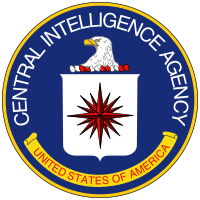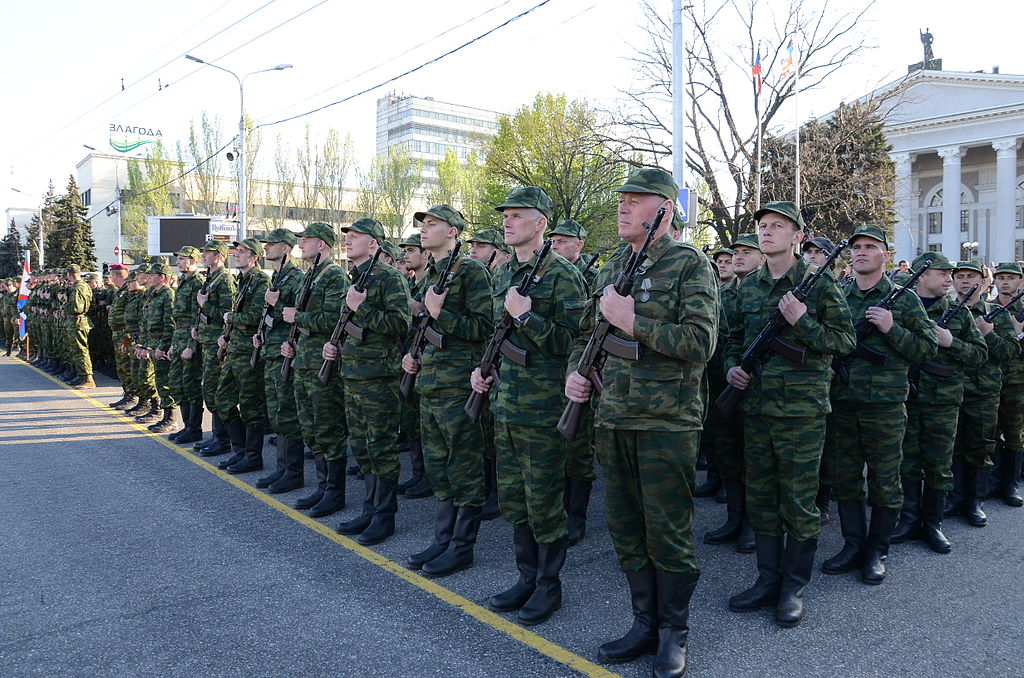There have been a lot of developments in the past couple of days with respect to the high tensions between Ukraine – with its NATO cheerleaders on one side and Russia on the other. Let’s recap what has happened since February.
First, in February, according to respected analyst Dmitri Trenin of the Carnegie Moscow Center: “Zelenskiy ordered troops (as part of the rotation process) and heavy weapons (as a show of force) to go near to the conflict zone in Donbas. He did not venture out as far as Poroshenko, who dispatched small Ukrainian naval vessels through the Russian-controlled waters near the Kerch Strait in late 2018, but it was enough to get him noticed in Moscow.”
At the beginning of March, the Zelensky government banned three opposition media outlets with the justification that they were pro-Russian and therefore essentially a source of enemy disinformation. Then on March 24th, Zelensky signed a decree approving a strategy to reintegrate Crimea and the Russian naval base at Sevastopol into Ukraine. Reporting by Telesur at the time stated:
On March 24, Ukrainian President Volodymyr Zelensky signed the Decree 117/2021 approving the “strategy of disoccupation and reintegration of the temporarily occupied territory of the Autonomous Republic of Crimea and the Sevastopol city.”
In practical terms, Ukraine’s decision could trigger actions leading to an armed conflict with Russia in which the United States or other Western countries could become involved.
What’s more, on April 1st, the commander in chief of Ukraine’s armed forces admitted that Ukraine had sent troops to the areas in question:
During an extraordinary session in the Parliament held on April 1, the Commander-in-Chief of the Ukrainian Army Ruslan Khomchak said that his troops are present in the “temporarily occupied areas… containing 28 enemy tactical groups.”
“Our armed forces are prepared to give an adequate response both to an escalation of the conflict and to an aggravation of the political-military and strategic-military situation on the border of Ukraine,” he stressed.
As summarized in my post from last week, ceasefire violations in the conflict zone in eastern Ukraine have greatly increased in recent weeks and Russia has amassed troops and military equipment in Crimea and near the border of eastern Ukraine in response to Ukraine’s moves. Moreover, U.S. diplomatic and military leaders were decrying Russian “aggression” and offering “unwavering support” for Ukraine.
(Keep in mind that these tensions are occurring amidst the backdrop of NATO’s Defender Europe 2021 exercises – or war games, depending on your point of view – in the region, including the Balkans and the Black Sea areas).
Late last week, it was reported that the U.S. would be sending two warships, the USS Donald Cook and USS Roosevelt, to the Black Sea. They are set to arrive today and tomorrow. Additionally, the U.S. Navy planned on flying recon flights over the area near Crimea. In response, Deputy Foreign Minister of Russia, Sergei Ryabkov, publicly stated that NATO forces should stay away from Crimea. According to reporting yesterday by the UK’s Daily Mail:
Russia warned the US to keep its warships away from Crimea ‘for their own good’ as it accused Washington and NATO of turning the region into a ‘powder keg’ amid soaring tensions on the Ukraine border.
Deputy Foreign Minister Sergei Ryabkov called Washington’s decision to deploy two ships to the Black Sea ‘a provocation’ designed ‘to test our nerves’ as he branded the US ‘an adversary’ of Russia, ramping up a war of words between the two nuclear-armed superpowers.
Furthermore, Russian Defense Minister Sergei Shoigu made a surprise visit to Russian troops near the Ukrainian border and stated that the Russian military would be ready to act in response to any escalation. RT reported:
Two detachments of the Russian Army, along with three airborne units, are ready to act in the event tensions with the West escalate into full-blown fighting, Moscow announced on Tuesday following a surprise inspection of troops.
After paying a visit to the soldiers, Defense Minister Sergey Shoigu told journalists that the personnel met the standards required for the situation. “The troops have shown full readiness and ability to fulfill the tasks of ensuring the country’s military security,” he said. “Currently, these associations and formations are engaged in drills and exercises.”
Shoigu said that the redeployments had taken place “in response to the military activity of the alliance that threatens Russia.” The move comes amid escalating tension with the US-led NATO bloc and after bloody fighting in eastern Ukraine between Kiev’s forces and two breakaway republics.
Biden initiated a phone call with Putin yesterday to discuss the situation and offered to have a summit where the two leaders could meet in a third country. There is no confirmation yet as to whether Putin has agreed to the summit, but he reportedly reiterated the Minsk agreements as the basis for settlement of the conflict.
According to Trenin’s analysis from yesterday of the tensions, Russia’s actions include a desire to let Washington and Ukraine know that if they want to play with fire, there is a high chance of getting burned:
The Russian military massed troops along the entire Russo-Ukrainian border, from the north to the east to the south. It did so visibly and made sure that Western observers could analyse the manoeuvres and conclude that they might not necessarily be a drill. Some reports, for example, spoke of field hospitals being brought to the border. In making its move, Moscow was pursuing several objectives:
To intimidate and deter Ukraine’s leaders, whom the Kremlin regards as inexperienced and irresponsible (in Kozak’s disparaging words, “children with matches”);
To send a message to the United States urging Washington to take better care of its wards, lest they get America itself into trouble (there were repeated references to the Mikheil Saakashvili syndrome, referring to the then Georgian leader launching an attack in 2008 against the Russian-protected breakaway region of South Ossetia in the belief that he would be supported by a US military intervention, which never came);
To convince the Germans and the French that supporting everything that Ukraine says or does carries a cost for Europe;
To reassure the people of Donbas that Russia will not abandon them to the Ukrainian army should it attack the two enclaves.
During the crisis, Kozak, who is also the Kremlin’s deputy chief of staff, essentially repeated President Vladimir Putin’s earlier stern warning that a Ukrainian offensive in Donbas would spell the end of Ukrainian statehood.
Having made their points by means of actions on the ground, the Russians were then available to discuss the situation, both with German and French political leaders and the top US military commander. In those conversations, they dismissed out of hand all European criticisms about the troop movements on their own territory and only engaged in a detailed professional discussion with the US chairman of the Joint Chiefs of Staff, simply to help him avoid a dangerous miscalculation.
Unfortunately, this situation and the dangerous implications have not been getting the attention they deserve in US media. One exception was Tulsi Gabbard appearing on Tucker Carlson Tuesday night.


